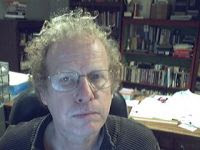The obvious place to put date sensitive reminders is the calendar. It can be great for appointments, date sensitive reminders, or even things you might want to do. Paper calendars come with limited storage capacity and electronic ones may have a lot of competition for your attention. Here are a few other ways people have built to preserve and deliver those whispers from the past.
The Tickler File
Create a set of 43 folders -- twelve with Month names and 31 with numbers 1 to 31 for days of the month. For items less than a month ahead, put a note in the folder with the corresponding date. For items up to a year in the future, drop the item in the month you want to see it and put it in the corresponding day at the start of the month. You get free delivery of actual paper as far as one year ahead. Just remember to check the folders daily.
Scheduled Email Delivery
You can send an email into the future, either with or without attachments. The Internet offers a number of reasonable choices, including the following:
- Nudgemail.com is a good reminder to yourself with no account needed. The message gets returned to you at the date and time specified.
- Timecave.com and lettermelater.com require accounts but offer more flexibility, including delayed email to others complete with attachments. Because they have accounts, you can review your scheduled notes and adjust them.
Use Tasks Instead of Calendar
Outlook allows you to created tasks with specific dates instead of (or in addition to) the calendar. Other task managers have similar features. You have far better control over your data than storing an email in the Cloud.
Keep a separate checklist of tasks you do every day or nearly so. Mine includes daily medication, feeding the pets, daily exercise, and other things I should do daily. This avoids recurring tasks filling up my calendar or action lists.
Summary
- Use a tickler file to send physical paper, tickets, bill reminders, etc. to yourself up to a full year ahead.
- Use time delayed email to send yourself or others in the future.
- Put time markers on action items to clear thye clutter from your electronic calendar.
- Beware of masked women in skin tight vinyl and their evil, rich bosses.
- If you hear a whisper telling you to use the force, think April Fools joke before grabbing your light sabre.

